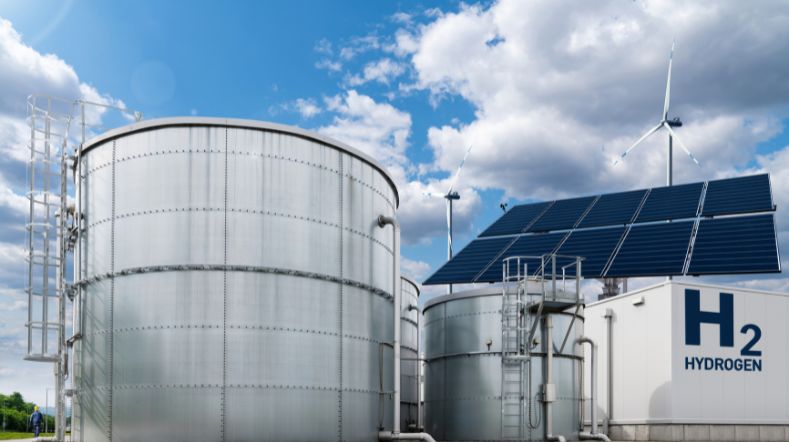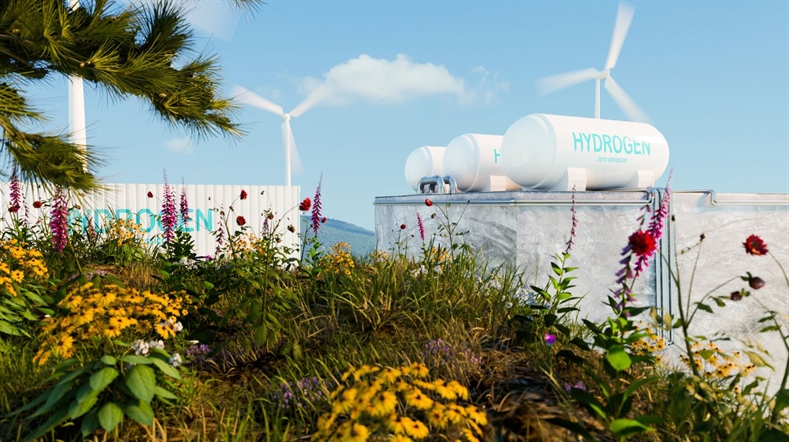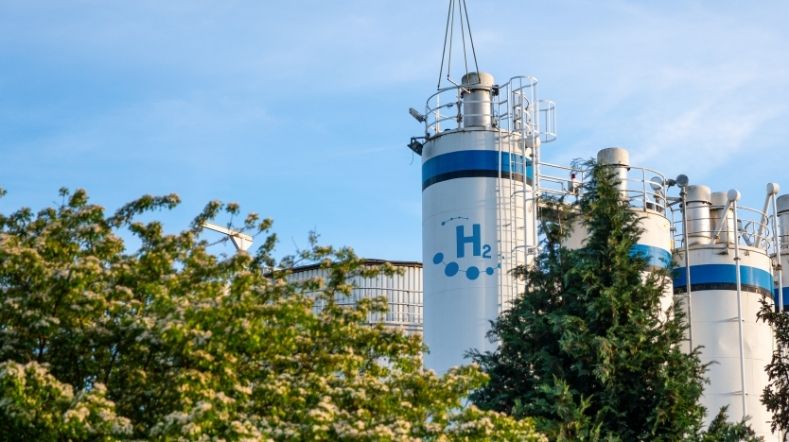
Towards clean hydrogen production
Producing hydrogen without carbon emissions is called green hydrogen. It is made from water via electrolysis with renewable electricity from sun and wind. Technological challenges stand in the way of making green hydrogen. Therefore, we are working on innovating the production, transport, storage, and use of green hydrogen as a fuel and raw material.
Hydrogen as fuel
Hydrogen is important in the transition to a sustainable energy supply. At present, it is mainly grey hydrogen that is being produced by reforming natural gas for industrial applications. This releases a great deal of CO2. The main applications are in the chemical industry for making ammonia and fertiliser, and for oil refining. Hydrogen is also fuel for heavy transport by road, rail, water, and, in time, even air.
Hydrogen as fuel for vehicles
Hydrogen is making headway in road transport. The government recently announced the arrival of 50 new hydrogen-powered buses for public transport in Groningen, Drenthe, and Zuid-Holland.
Passenger cars and lorries with fuel cell systems refuel with hydrogen and emit water as a by-product. This system uses hydrogen to produce electricity to drive the electric motor.
For carbon-neutral road traffic, we are working on the development, introduction, and optimisation of fuel cell systems for various types of vehicles. With our validated measurement methods and models, we help fleet owners determine the best possible combination of fuel cell and battery for a specific use in electric vehicles.
15 things you need to know about hydrogen
Hydrogen production at present
The current production of hydrogen is described in a report (pdf) (in Dutch) that we compiled together with Statistics Netherlands, financed by the Netherlands Enterprise Agency. In the report, you can read:
- About the relationships between hydrogen production and elements in the Energy Balance. At present, hydrogen is not included as an energy carrier in the energy statistics.
- About possible future ways of producing, transporting, and using hydrogen.
- About the possible implications and methodological research points for energy statistics, which are embedded in international frameworks.
Towards green hydrogen
Green hydrogen is the only alternative, in addition to electricity, for the large-scale deployment of wind and solar energy in the future renewable energy system, including for sectors that are difficult to decarbonise, such as high temperature industrial processes, heavy transport, and aviation. In those sectors electricity from sun and wind is not sufficient or feasible. Hydrogen is a good alternative in many cases.
What is electrolysis of water?
In electrolysis, water is split into hydrogen and oxygen. This requires electricity. By using renewable electricity generated by sun and wind, green hydrogen is produced. Making more green hydrogen requires the expansion of solar and wind power in our energy system, as well as additional electrolysis plants. Together with companies in the manufacturing industry, we are working on electrolysers with greater capacity, longer life, and lower costs.
Blue hydrogen as an intermediate step
In the transition to green hydrogen, blue hydrogen plays an important role. Blue hydrogen is low in carbon. Up to 90 per cent of the carbon emitted during the production of grey hydrogen is captured and stored, for example, in empty gas fields in the North Sea.
Storage of hydrogen
Peaks and lows in energy demand put pressure on the electricity grid. An advantage of hydrogen is that it can be stored for later use. This allows energy from the sun and wind to be stored. In this way, possibly even fluctuations in seasons can be coordinated. We are researching these kinds of solutions and looking for grid operators and energy suppliers with whom to test the solutions.
Storage and transport
It is expected that in the future some hydrogen will be produced at sea on energy islands. This hydrogen will need to be transported and storaged. Floating or existing platforms and existing gas pipelines can be used to bring the hydrogen to land. Research must show whether storing hydrogen in empty gas fields under the North Sea is safe and profitable.
Green hydrogen as a new fuel and raw material
We are working with national and international partners on the electrification of the chemical industry. We are working on ground-breaking technologies, such as:
- Power2Heat: conversion of electricity into heat
- Power2Hydrogen: hydrogen production via innovative electrolysers
- Power2Fuels: conversion of sustainable hydrogen into fuel
- Power2Chemicals: indirect thermochemical and direct electrochemical conversion of water, carbon, and nitrogen into chemicals using electricity
We are also researching the economic feasibility of these solutions. In addition, we are involved in major projects in the field of sustainable mobility and logistics. For example, the development of heavy lorries running on hydrogen and a mobile hydrogen filling station.
Test site
Together with partners, we have set up a test site in the form of a hydrogen-generating wind turbine, with a corresponding filling station. We are looking for municipal services, transport companies, and private individuals who want to get to know the advantages of (driving by) hydrogen in an accessible way.
Watch the webinar on the role of hydrogen in the energy transition
Get inspired
World Hydrogen Summit 2025
Hydrogen in the energy system: The future of sustainable energy in the Netherlands and Europe


NORCE and TNO are entering into a strategic partnership on hydrogen developments


Dutch consortium participates in EU research project on large-scale hydrogen storage in depleted gas fields


Underground hydrogen storage





